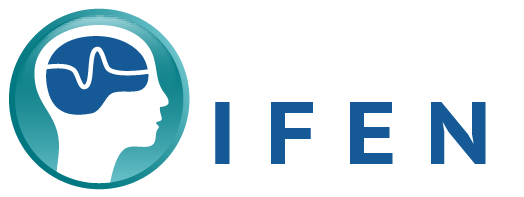QEEG for neurofeedback therapists
Beschreibung
QEEG Workshop for Neurofeedback Therapists
Using databases such as BrainDX and ANI (Applied-Neurosciences Inc.)
- Recognizing biomarkers in the EEG
- ADHD
- Depression
- Anxiety
- PTBS
- Z score training based on specific QEEG analyses
In 2012, the fifth revised edition of "The Diagnostic and Statistical Manual of Mental Disorders" (DSM-V) will no doubt become the main source of reference for psychiatrists and neurologists. The new thing about it is that all brain disorders can also be evaluated in line with their neurological markers. This approach also presumes that psychiatric diagnoses in the future will consider the functional anatomy of the human brain to a greater extent than the factors responsible for the disorder.
Here, an innovative turning point is taking place which finally also integrates modern brain research and thus also neurofeedback in the considerations.
The quantitative EEG will increase in significance because latest research shows that many dysfunctions such as ADHD, schizophrenia, OCD, depression, specific learning disorders and others correlate with corresponding brain wave patterns (biological markers). Neurofeedback has long been working with these biological markers and is therefore so successfully established for this very reason.
By means of a normative database, the values can be compared with those of the examined EEG. One thus receives valuable indications of possible pathologies, but also of strengths and compensation mechanisms of the central nervous system.

ABB: QEEG recording diagnosis learning disorder ADHD

QEEG spectral view: Peak performance characteristic by means of high peak frequency
Curriculum 
Day 1
- Electroencephalograph in the clinic
- EEG technology and basic understanding of normal and suspicious EEG patterns
- Recognizing and removing artifacts
- Learning the application of brainmapping software
- Locating and training clinically abnormal places in the 10/20 system
- Characteristics of typical brain maps for depression, ADHD, anxiety, trauma, craniocerebral injury, post-traumatic stress disorder, autism, Asperger's syndrome
- Introduction into operating the software NeuroGuide
Day 2
- Recording the QEEGs:
- Obtaining data, editing using Neuroguide and Brain-Avatar
- Data collection (programme execution)
- Normative EEG patterns based on data base comparisons
- Drug effects in relation to EEG
- Networks, hubs and correlation to symptoms with protocol selection
- Neurofeedback for learning disorders, craniocerebral injuries
Day 3
- Supplementing the z score training system by indicators, contra-indicators, global or local training strategies, role of assessments, refining strategies (1 hertz frequency band analysis)
- Multi-channel neurofeedback with symptom check list method
- 3-D-Loreta training and ROI training with and without z score
- Comparing z scores to symptoms with neurology
- Z score method with live z score training
 Credit points
Credit points
Credit points for the Chamber of Psychotherapists, credit points for ergotherapists and other professional groups.
What benefit does the use of QEEG have for you as therapist?
- You obtain higher hit quotas enabling more efficient training;
- EEG therapy by means of QEEG is relatively easy to learn;
- Brain maps provide a meaningful basis for protocols, appear more convincing and professional;
- More certainty in the clinical evaluation of symptoms;
- The comparison of before-after maps is an impressive visualization of the success of therapy;
- Greater acceptance by doctors and other representatives of the medical profession. QEEG is based on statistics, and these in turn are regarded as the gold standard in sciences.





